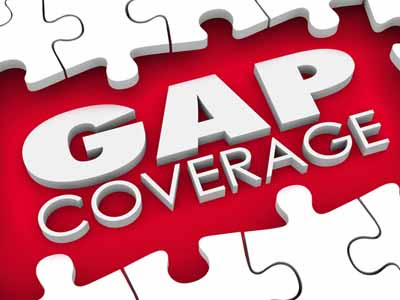Understanding GAP Car Insurance: Safeguarding Your Finances in Total Loss Situations
If you’re unfamiliar with GAP insurance, or guaranteed asset protection insurance as it’s known fully, it’s a valuable insurance benefit that you can have added to your car insurance policy that will help bridge the gap between your car’s actual cash value and what you still owe on your auto loan or lease, otherwise known as the ‘gap’ if your car is deemed totaled in an accident or stolen. In the following, we’ll take a comprehensive look at GAP car insurance, what it can do and why it’s important; as well as how GAP car insurance works for your protection, and for whom it may be most useful for bolstering your finances should your vehicle ever be judged as a total loss in an accident or after being reported stolen. Armed with this knowledge, you’ll be better able to make decisions toward ensuring your financial safety, as well as feeling more confident behind the wheel too.
What is GAP Car Insurance? GAP car insurance provides coverage for the gap between your car’s actual cash value and your outstanding loan or lease balance in the event of your car being totaled, so you won’t be stuck with serious debt after all that’s gone.
How Does GAP Car Insurance Protect You? When you buy a new car, the value declines as soon as you drive it off the lot. When your car is badly damaged in an accident or stolen, your insurance company will cover you for its actual cash value, i.e., how much it’s worth in the marketplace at that time. Unfortunately for you, that might be less than what you still owe on your loan or lease. GAP insurance fills the gap, and it saves you from having to pay the difference.
Who is GAP Car Insurance for? Anyone who has financed or leased a brand new car, particularly with low down payment or long term loan is at risk for negative equity and should consider GAP car insurance. If your car depreciates quickly you are at risk of negative equity and should buy GAP car insurance.
GAP Car Insurance for Leased Vehicles: Sometimes you have to have GAP insurance when you lease a car, as leasing companies generally require it as a part of the lease. Essentially, GAP insurance protects the lessor (leasing company) from the exposures it faces in financing your car for a term.
How to Get GAP Car Insurance: You can purchase GAP insurance directly from your car dealer, from an insurance company, or from those specialized insurance companies. Keep in mind that price and coverage terms may vary. Make sure you shop around for more information before making your purchase.
LENGTH OF GAP COVERAGE: GAP insurance usually applies when you own your car but still have a loan or lease for the car. Typically, that’s for just a few years, until your car’s worth is substantially less than what you still owe on it. By then, you also have another option for bridging the gap between your loan and the actual cash value of your car.
GAP car insurance is an essential protection that helps avoid out-of-pocket expenses over a total loss on your vehicle. For instance, if after your accident your vehicle is deemed not repairable and your outstanding loan or lease amount is greater than your actual cash value, GAP car insurance will pay the difference to keep you out of debt. If you’re financing or leasing a new car, you can reduce stress by learning about GAP car insurance. Not only will it avoid potential loss issues, but it will also keep you out of financial harm’s way. Know that you’re protecting your financial investment with GAP car insurance.














